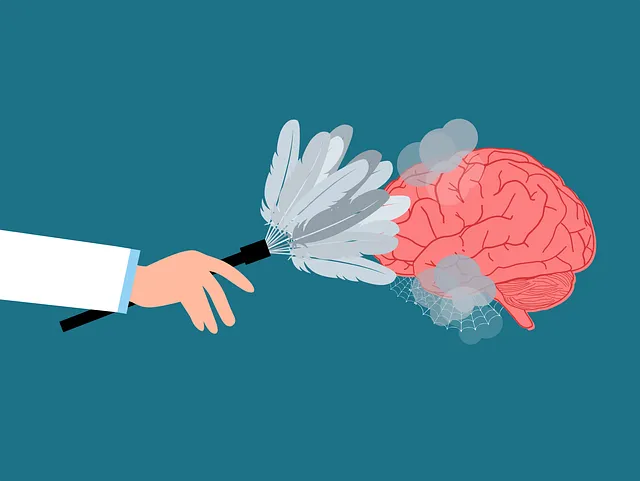Public awareness campaigns, like those initiated by Kaiser Permanente psychiatry services in Boulder, are powerful tools for transforming societal attitudes towards mental health. By educating and fostering empathy through initiatives like Compassion Cultivation Practices, these campaigns encourage individuals to prioritize their mental well-being. Targeting specific audiences such as teenagers at risk of anxiety or healthcare workers experiencing burnout, these campaigns deliver relevant resources and information. Compelling content design, storytelling, and interactive elements engage the audience while technology reaches a broader, remote audience through digital platforms. Success is measured using multi-faceted evaluation metrics, including tracking campaign engagement, changes in public knowledge, and service uptake like stress management workshops.
Public awareness campaigns are powerful tools for educating and engaging communities, especially when addressing mental health issues. This article explores the development and impact of such campaigns, focusing on Kaiser Permanente Psychiatry Services in Boulder. We’ll delve into strategies for understanding target audiences, designing compelling content, leveraging technology for accessibility, and measuring success through evaluation metrics. Discover how initiatives like these, including contact details for Kaiser Permanente psychiatry services in Boulder (e.g., phone number), can create lasting change.
- Understanding Public Awareness Campaigns: Their Role and Impact
- Identifying Target Audiences for Effective Communication
- Designing Compelling Content: Strategies for Engagement
- Leveraging Technology for Broad Reach and Accessibility
- Measuring Success: Evaluation Metrics for Mental Health Initiatives (Focusing on Kaiser Permanente Psychiatry Services in Boulder)
Understanding Public Awareness Campaigns: Their Role and Impact

Public awareness campaigns play a pivotal role in shaping societal attitudes and behaviors, especially when it comes to mental health. These initiatives aim to educate and inform individuals about various issues, fostering a deeper understanding and encouraging positive change. In the context of Kaiser Permanente psychiatry services in Boulder, such campaigns can significantly impact the community’s approach to mental well-being.
By implementing strategies like Compassion Cultivation Practices, which focus on fostering empathy and kindness, these campaigns contribute to Stress Management and Burnout Prevention. They create a supportive environment where people feel more comfortable seeking help for their mental health concerns. The Kaiser Permanente psychiatry phone number Boulder residents can access is a direct result of such awareness efforts, ensuring that support is readily available when needed.
Identifying Target Audiences for Effective Communication

Identifying target audiences is a critical step in designing effective public awareness campaigns. When it comes to mental health initiatives, understanding who you’re speaking to is paramount. For instance, a campaign focused on promoting emotional regulation techniques might target teenagers, given their heightened risk of anxiety and depression. Similarly, professionals like those at the Kaiser Permanente psychiatry phone number Boulder could direct resources towards burnout prevention among healthcare workers.
By segmenting audiences, mental health advocates can tailor messages accordingly. This approach ensures that information about risk assessment for mental health professionals is relevant and useful. For example, a campaign aimed at folks in high-stress professions might emphasize coping strategies to manage stress and avoid burnout, while still appealing to a broader audience interested in overall mental wellness.
Designing Compelling Content: Strategies for Engagement

In the realm of public awareness campaigns, designing compelling content is paramount to capturing attention and fostering engagement. For initiatives focusing on mental health, such as those promoted by organizations like Kaiser Permanente in Boulder, leveraging creative strategies can significantly enhance impact. One powerful tool is storytelling, which allows for personal connections and relatable narratives. Sharing real-life experiences, whether through video testimonials or written case studies, can humanize complex issues like psychiatry and encourage individuals to seek help.
Additionally, incorporating interactive elements, such as quizzes, polls, or virtual workshops, can actively involve the audience in their learning journey. For instance, a campaign could include a risk assessment for mental health professionals, offering personalized feedback on stress reduction methods tailored to their unique needs. Promoting practices like mindfulness meditation can also be effective; simple, accessible guides or guided sessions can help participants integrate these techniques into their daily lives, ultimately fostering a more resilient and aware community.
Leveraging Technology for Broad Reach and Accessibility

In today’s digital era, leveraging technology offers immense potential for public awareness campaigns to reach a broader audience and enhance accessibility. Online platforms provide an opportunity to transcend geographical boundaries, ensuring that valuable mental health information reaches folks across diverse communities, including those in remote areas or with limited mobility. For instance, interactive webinars, live Q&A sessions, and virtual reality experiences can engage participants from the comfort of their homes, breaking down barriers often associated with traditional outreach methods.
This approach is particularly relevant for organizations like Kaiser Permanente Psychiatry, where reaching a wide range of individuals seeking support for mental illness is paramount. By utilizing social media, mobile applications, and online resources, such as Stress Management Workshops, Mental Illness Stigma Reduction Efforts can gain traction and foster open conversations about mental health. This strategy not only amplifies the impact of public awareness campaigns but also encourages personalized connections, allowing individuals to access relevant information and support tailored to their needs, whether they’re in Boulder or beyond.
Measuring Success: Evaluation Metrics for Mental Health Initiatives (Focusing on Kaiser Permanente Psychiatry Services in Boulder)

Measuring the success of public awareness campaigns is paramount to understanding their impact and identifying areas for improvement. For mental health initiatives, evaluating progress requires a multi-faceted approach. Organizations like Kaiser Permanente Psychiatry Services in Boulder employ various evaluation metrics to gauge the effectiveness of their programs.
One key metric is tracking the reach and engagement of campaign materials, such as through website visits, social media interactions, and calls to the Kaiser Permanente psychiatry phone number Boulder residents can access for support. Additionally, they measure changes in public knowledge about mental health issues through surveys before and after the campaign. Beyond this, Kaiser Permanente assesses the uptake of services offered, like stress management workshops organized by the healthcare provider or Emotional Well-being Promotion Techniques incorporated into their patient care, to determine community engagement and willingness to seek help.
Public awareness campaigns play a pivotal role in shaping public understanding and behavior, especially in areas like mental health. By identifying specific target audiences through strategic communication, designing engaging content, and leveraging technology, initiatives like those evaluated for Kaiser Permanente Psychiatry Services in Boulder can effectively reach and impact communities. Measuring success through tailored evaluation metrics ensures these campaigns remain impactful and adaptable to evolving needs, such as providing crucial resources through the Kaiser Permanente psychiatry phone number Boulder residents can easily access. This data-driven approach not only enhances accessibility but also fosters a more informed and supportive society for mental health.






